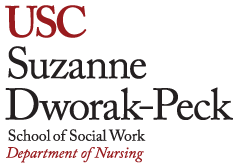Dynamics of supply and demand—namely, high demand and not enough workers—are helping boost the salaries of nurse practitioners. The median salary for nurse practitioners has increased 16% year over year to nearly $125,000 as of February 2023, according to ZipRecruiter.
“Labor shortages are the No. 1 reason behind a higher-than-average pay increase in the field,” Sinem Buber, lead economist at ZipRecruiter, tells Fortune. “There is increasing demand for health care professionals, which accelerated even more during the pandemic.”
Close to 100 million Americans live in areas that don’t have enough health care professionals, according to the U.S. Department of Health and Human Services. Nurse practitioners are in particularly high demand—especially amid a projected shortage of physicians—because they’re becoming the go-to health care professional for millions of Americans, according to the American Association of Nurse Practitioners. The lack of health care is particularly acute in rural and underserved urban communities, and in more than half the states, advanced nurse practitioners can have full practice authority—that is, without the oversight of a physician.
The role of nurse practitioner is the fastest growing occupation in the United States, with demand projected to grow 46% by 2031, according to the U.S. Bureau of Labor Statistics. And yet, there was a 6.5% decline in enrollment across the 29 schools on Fortune’s ranking of the best online master’s in nurse practitioner programs between fall 2021 and fall 2020.
“The number of nurse practitioners that are joining the workforce did not increase at the same pace” as demand, Buber notes. “Health care employers had to offer higher pay to attract qualified candidates to fill those open positions for the last three years, which drove the wages higher for nurse practitioners.”
Demand for nurse practitioners varies by state
The demand for nurse practitioners is projected to continue to grow in 2023—as are salaries. “The wage growth in nurse practitioner positions is likely to outpace the overall wage growth in the economy in the next couple of years since the industry faces severe talent shortages,” Buber says.
Demand, however, varies by state and region. That’s true not only for nurse practitioners as a whole but also for nurses with specialty roles, such as those who work with newborns or in the intensive care unit.
In California, there is a need for 33,000 full-time nurse practitioners, while there is little demand for nurses in Wyoming, Vermont, and North Dakota, according to health workforce projections by the U.S. Department of Health and Human Services.
“Depending on the state that you’re in, sometimes we’ll see that acute care nurse practitioners make a little more—they’re the ones who are going to be employed by health care systems—versus a pediatric primary care person is going to work in the community, in a private office,” says Imelda Reyes, associate dean of advanced education at the University of Nevada-Las Vegas School of Nursing. She’s also a member of the Policy and Advocacy Committee for the National Association of Hispanic Nurses.
Nurses who care for patients with acute conditions will generally earn a higher salary. Out of all the nurse roles, certified registered nurse anesthetist and mental health nurse practitioners are the highest paying roles, adds Reyes. The national average annual salary for a nurse anesthetist is $187,000 and $149,000 for a psychiatric nurse practitioner, according to ZipRecruiter.
Psychiatric mental health nurses can practice via telehealth more easily because they generally do not have to see the patient in person to make an assessment. For nurses working independently in states that allow full practice authority, such as New York, Colorado, and Nevada, this can reduce overhead costs and allow them to earn a higher salary. States that don’t allow full practice authority, such as Michigan, Texas, and California, require a physician’s supervision, which comes at a cost.
As the above information illustrates, a nurse’s salary depends on the state where the nurse works, on the nurse’s specialty area, and whether that state allows full practice authority. Working in a health care system and having an in-demand specialty generally allows nurses to make higher salaries, according to Reyes.
Expect demand for nurse practitioners to continue to surge
There are a variety of factors that will result in continued high demand for nurse practitioners.
“The aging population, widespread chronic diseases, rising rates of dementia, drug use, and addiction are some of the major reasons behind the increasing demand for health care services in the U.S.,” Buber says. “Even after the pandemic comes to an end, the job openings for all health care professionals, especially for nurses, will be surging for the foreseeable future.”
A nurse’s role has largely stayed the same in recent years but is now changing: health care employers are seeking nurses who can use technology to document the patient’s visit. They are also recruiting for nurse practitioners with advanced practice credentials, including those with a master’s or doctorate degree.
While the top skills, such as patient care and collaboration, have stayed the same, recruiters have placed an increased emphasis on patient reporting (electronic health records and general documentation), direct patient care (physical examination and treatment planning), as well as advanced credentials, according to Buber.
Demand for nurse practitioners is projected to continue increasing by 13% over the next decade, according to the U.S. Department of Health and Human Services. Nurses with advanced degrees working in states that have high nurse-demand and allow full practice authority will be better positioned to make bigger salaries.
“There are unique challenges for health care employers when they are dealing with talent shortages,” says Buber. Unlike in most industries, the credential requirements for healthcare professional job openings cannot be waived to reach a bigger talent pool.”
Check out all of Fortune’s rankings of degree programs, and learn more about specific career paths.








